As the capital of both England and the United Kingdom, the home of the British Royal Family, and some of the most globally recognized landmarks, it’s no surprise why London has long been popular with both domestic and global visitors for years.
This bustling multicultural hub has more sights, attractions, opportunities, and things to do than most places in the UK, let alone larger parts of Europe - which makes the idea of living in London very appealing.
However, is this enough to justify joining the ranks of the nearly 9 million people who currently live in London? Let’s find out.
Secure Peace of Mind with Best-Value International Health Coverage
International Citizens Insurance provide free, no-obligation quotes from the leading international health insurance providers with plans tailored to meet your needs. Trusted by thousands of expats worldwide.
London overview
Is London worth its reputation? The most honest answer we can give here is that it depends on who you ask. London is such a large city, with so many different and diverse neighborhoods, that it’s hard to get a consistent answer.
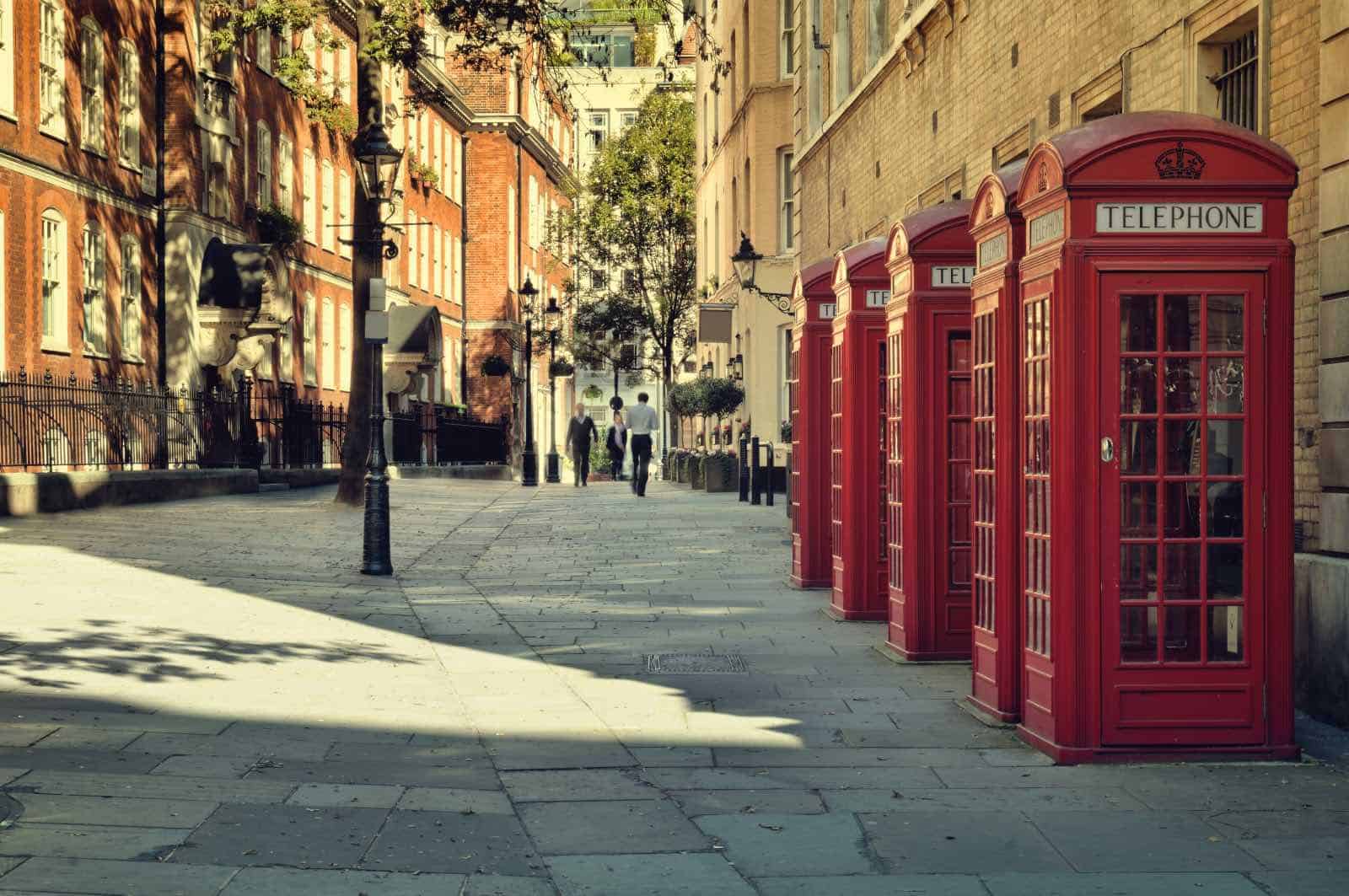
That being said, given the number of opportunities available and the countless amount of things to do and see, it’s safe to say that London is a great place to live - it simply isn’t for everyone.
London basically has it all.
Arts and culture, amazing job opportunities, diverse neighborhoods, sports and entertainment, history, huge green parks, and a well-connected transport system - essentially everything you could want from a major city.
If you want to get technical, it even has a beach... kind of. Along the River Thames, there are a few sandy patches that you can get to, although we don’t recommend you choose this as the spot for your summer vacation.
Furthermore, it offers ease of access to the rest of the world, with six total international airports and the Eurostar international train terminal at St. Pancras that connects to mainland Europe.
Heathrow provides direct flights to almost anywhere in the world. So if you get tired of life here and can afford it, you can get to almost anywhere in the world you wish.
This is likely why London is one of the most multicultural cities on Earth, with over a third of its population being born overseas. It’s regarded as a melting pot where people can come from anywhere and be who they want to be.
It’s also much greener than most major cities, with roughly 40% of the city being made up of parkland.
However, should you have a taste for something more metropolitan, there is an untold number of bars and pubs of all shapes and sizes, a thriving arts and theatre scene (it is home to the UK’s answer to Broadway - the West End), many free museums, and many other cultural events and activities.
London’s biggest draw is variety, and with so much to offer, it can definitely be a great place to live. However, life in London does come with a price tag.
London is an expensive city, but does the lifestyle justify the expenses? Let's delve deeper into the matter to find out.
The cost of living in London
One of the largest factors in life in London is cost.
Although it is not the most expensive city in the world to live in (it barely scrapes into the top 20), you will certainly notice the cost of living should you live here. This is one of the major trade-offs: the cost of living for the range of opportunity.
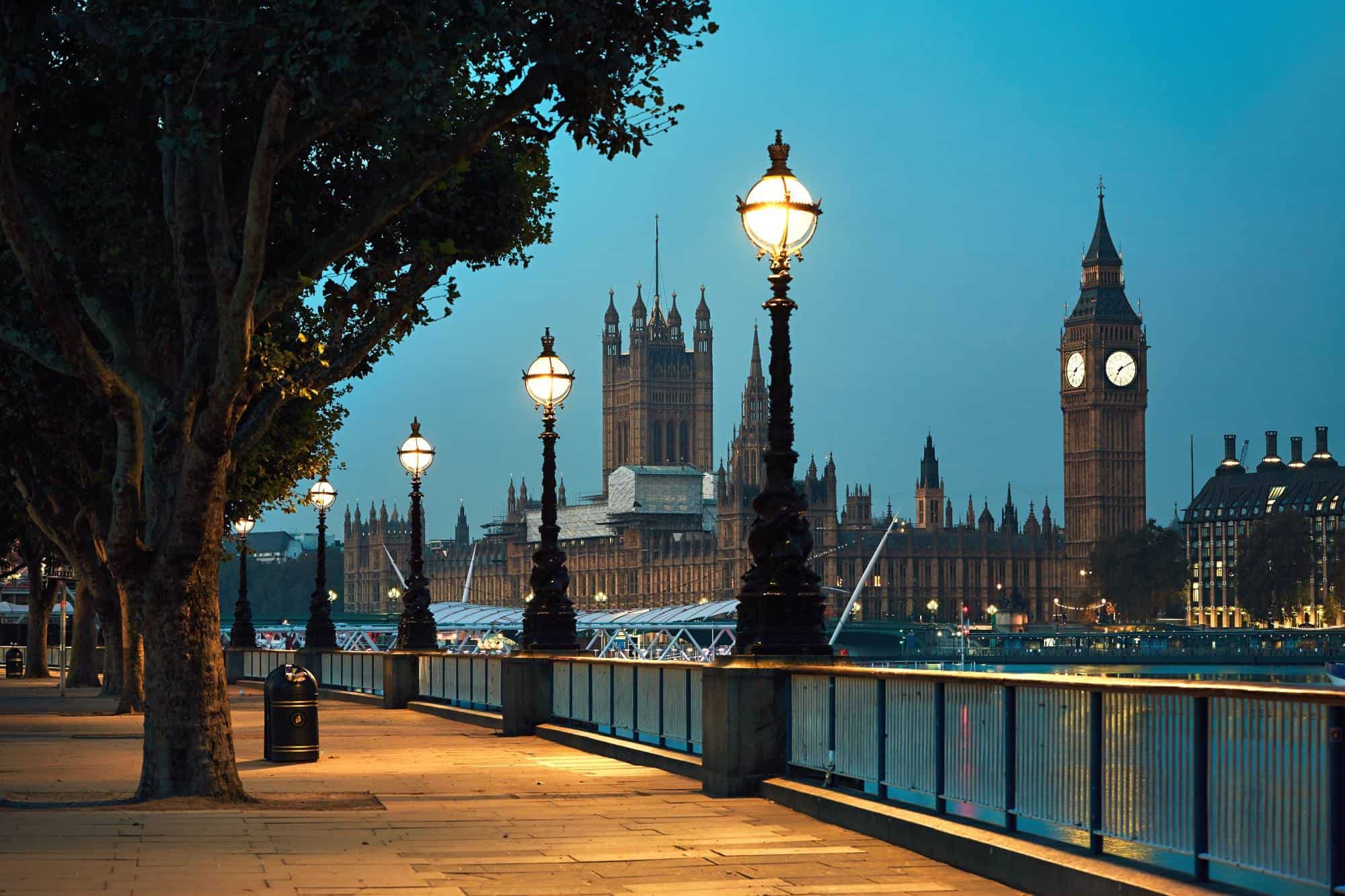
Many Londoners work hard in order to play hard, which is a huge part of the lifestyle here.
If you’re able to manage a decent salary, you’ll be able to live comfortably and enjoy at least some of the many things London has to offer.
Those on lower incomes will have a different but equally enjoyable experience when in London. The luxuries and activities enjoyed will be different.
Here is how much it costs to live in London on average for one person:
| Item | Average Cost (GBP) |
|---|---|
| Rent (1-bed apartment) | £1,700 per month |
| Utility Bills | £120 per month |
| Transport Costs | £140 per month |
| Groceries | £200 per month |
Please note that these are average costs and can vary depending on the location and lifestyle choices.
London transportation costs - details
A typical one-way trip on the Underground costs £2.80.
If you travel during peak hours, costs will be more expensive than during off-peak hours. Peak hours are Monday to Friday, between 6:30 am to 9:30 am, and between 4:00 pm to 7:00 pm, except on public holidays.
By using an Oyster card, you can save a lot.
A standard journey on a TFL (Transport for London) bus will cost £1.75, depending on the distance traveled.
A monthly pass for the Underground will cost £160. The one-week pass, including central London (zones 1-2), is £40.70.
What income is enough for a comfortable life in London
The London living wage is currently £13.15 per hour, and the average salary in the UK is roughly £33,500. The salary you need will vary depending on the lifestyle you hope to lead.
Many Londoners will suggest you need a salary of £70,000 plus to live comfortably. However, you will find that some people live on salaries of as little as £27,000 (typical in hospitality jobs and other casual roles).
Choosing an area in London
The other major factor determining your quality of life here is where you live.
London has a number of amazing boroughs (the name of an area in Greater London) that offer a different lifestyle. However, they, like everything else, are subject to the rules of supply and demand. Many of these areas are more popular, and therefore, decent housing is more expensive.
Living further from the city vs. paying more for housing
On the other hand, there are a number of areas that are more affordable but don’t offer much, so you’ll find yourself traveling regularly to other parts of the city. The trick is to find a good balance wherever you choose to live.
Here's the median rent for a 1-bed apartment in different London boroughs:
| Borough | Median Rent (£) |
|---|---|
| Barking and Dagenham | £1,200 |
| Barnet | £1,350 |
| Bexley | £1,100 |
| Brent | £1,400 |
| Bromley | £1,250 |
| Camden | £1,750 |
| City of London | £2,300 |
| Croydon | £1,200 |
| Ealing | £1,400 |
| Enfield | £1,200 |
| Greenwich | £1,350 |
| Hackney | £1,700 |
| Hammersmith and Fulham | £1,800 |
| Haringey | £1,450 |
| Harrow | £1,300 |
| Havering | £1,100 |
| Hillingdon | £1,250 |
| Hounslow | £1,300 |
| Islington | £1,650 |
| Kensington and Chelsea | £2,200 |
| Kingston upon Thames | £1,350 |
| Lambeth | £1,550 |
| Lewisham | £1,250 |
| Merton | £1,400 |
| Newham | £1,250 |
| Redbridge | £1,300 |
| Richmond upon Thames | £1,550 |
| Southwark | £1,600 |
| Sutton | £1,100 |
| Tower Hamlets | £1,500 |
| Waltham Forest | £1,250 |
| Wandsworth | £1,750 |
| Westminster | £2,300 |
If you can justify the sheer amount of things to do and the many creative and professional opportunities against the cost of living, you will find London worth it.
Provided that you’re happy to get through the winter, of course!
Free entertainment in the city
Another thing worth mentioning is all those wonderful freebies you can get to pass your time. Yes, London is expensive, but some of the best things here are free.
Spend your days exploring the treasures of the British Museum, roaming the National Gallery and the Natural History Museum.
Enjoy free displays in the Royal Academy of Arts, Tate Britain, and Tate Modern. Register for a British Library Reader Pass and enjoy free access to the library's collections and reading rooms. Or just relax in one of the beautiful city parks such as Hyde Park, Kensington Gardens, Richmond Park, or Regent’s Park.
For longer walks, go to north London, where you can find Hampstead Heath’s forested trails and bathing ponds.
You can find the full list of things you can do for free in London on the Visit London website.
The pros and cons of living in London
Like any major city, there are pros and cons of life in London. Here are the biggest ones to consider.
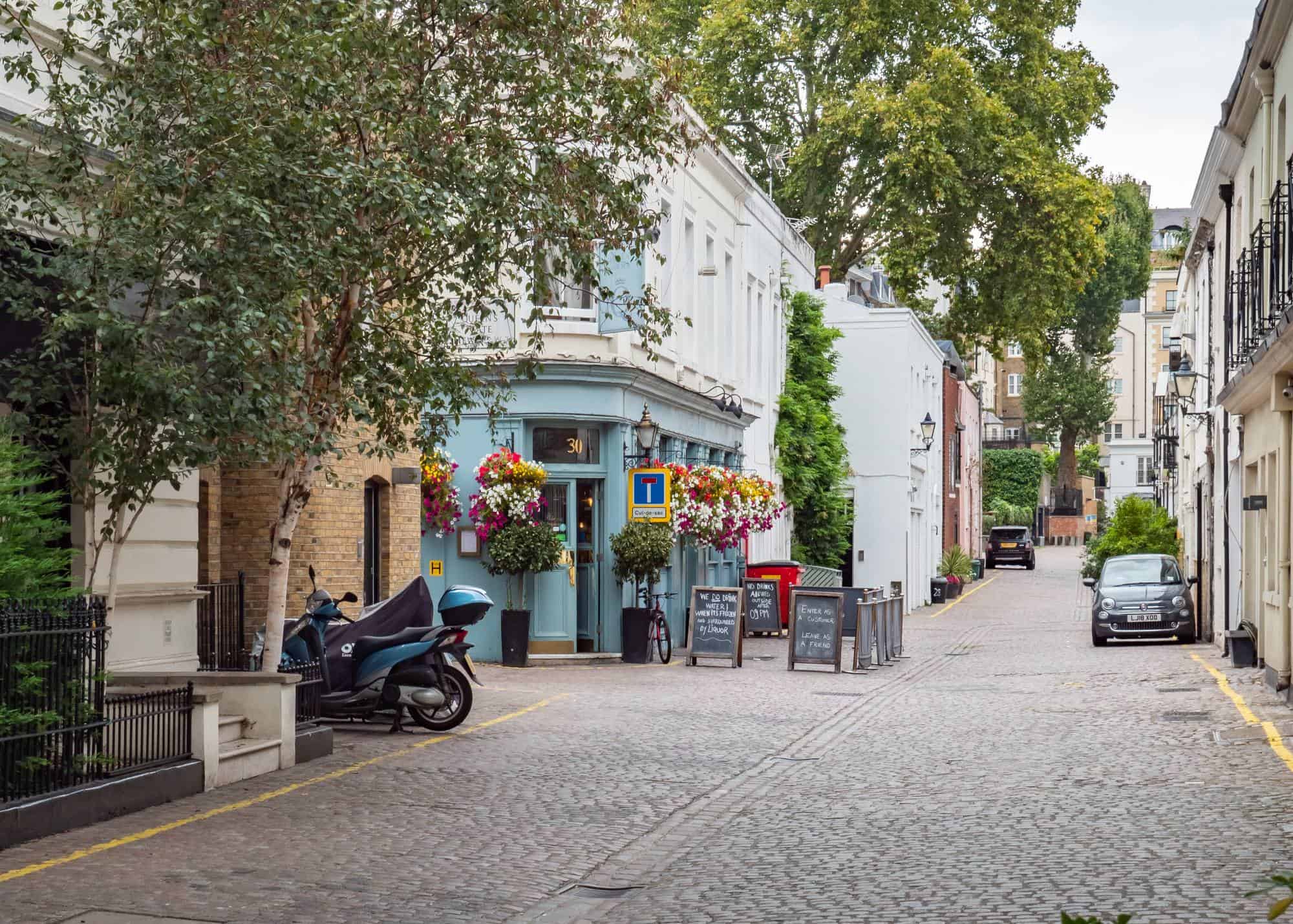
Living in London: pros
1. Activities on offer
It’s no secret there is simply a crazy amount of things to do in London. You’ll find it very hard to be bored in this city.
London has it all - from shopping and entertainment to arts and exhibitions, concerts and shows, clubs, and sports facilities, great street food, and fine restaurants.
Rich cultural offerings are one of the main London pros, of course. The West End is a must-visit for theater lovers, offering a wide array of musicals, plays, and performances, from classic productions to cutting-edge contemporary shows.
Food enthusiasts can also indulge in London's diverse culinary scene, with countless restaurants offering a range of cuisines from around the world. From Michelin-starred fine dining establishments to trendy street food markets, the city caters to all gastronomic desires.
For devoted urbanites, London is a city that truly goes above and beyond to provide the desired lifestyle.
2. The parks
London has some truly stunning parks on offer for you to explore, making it easy to get in touch with nature and escape the concrete jungle. Local residents use parks for all kinds of activities, from walking dogs to morning runs, meeting with friends, having a picnic, or taking children to playgrounds.
Want to feel closer to nature and wildlife? London Zoo is right in the heart of the city, giving you a chance to experience wildlife from across the world and have a fun day out.
3. Job opportunities and salaries
The UK is one of the top countries that offer opportunities and high incomes to professional expats. These opportunities are mostly concentrated in London.
The job market in London is massive and offers plenty of opportunities in virtually every industry. This is one of the biggest draws of London - many of the world's largest businesses have offices here, as well as many other exciting new companies and startups.
Plus, the job market is very competitive, and the salaries in many industries reflect this. So if a career and a good income are your priorities, living in London is a good idea.
4. Good choice of transport to travel around the city
To travel around the city, there is the Underground (tube), as well as regular bus services and overground trains.
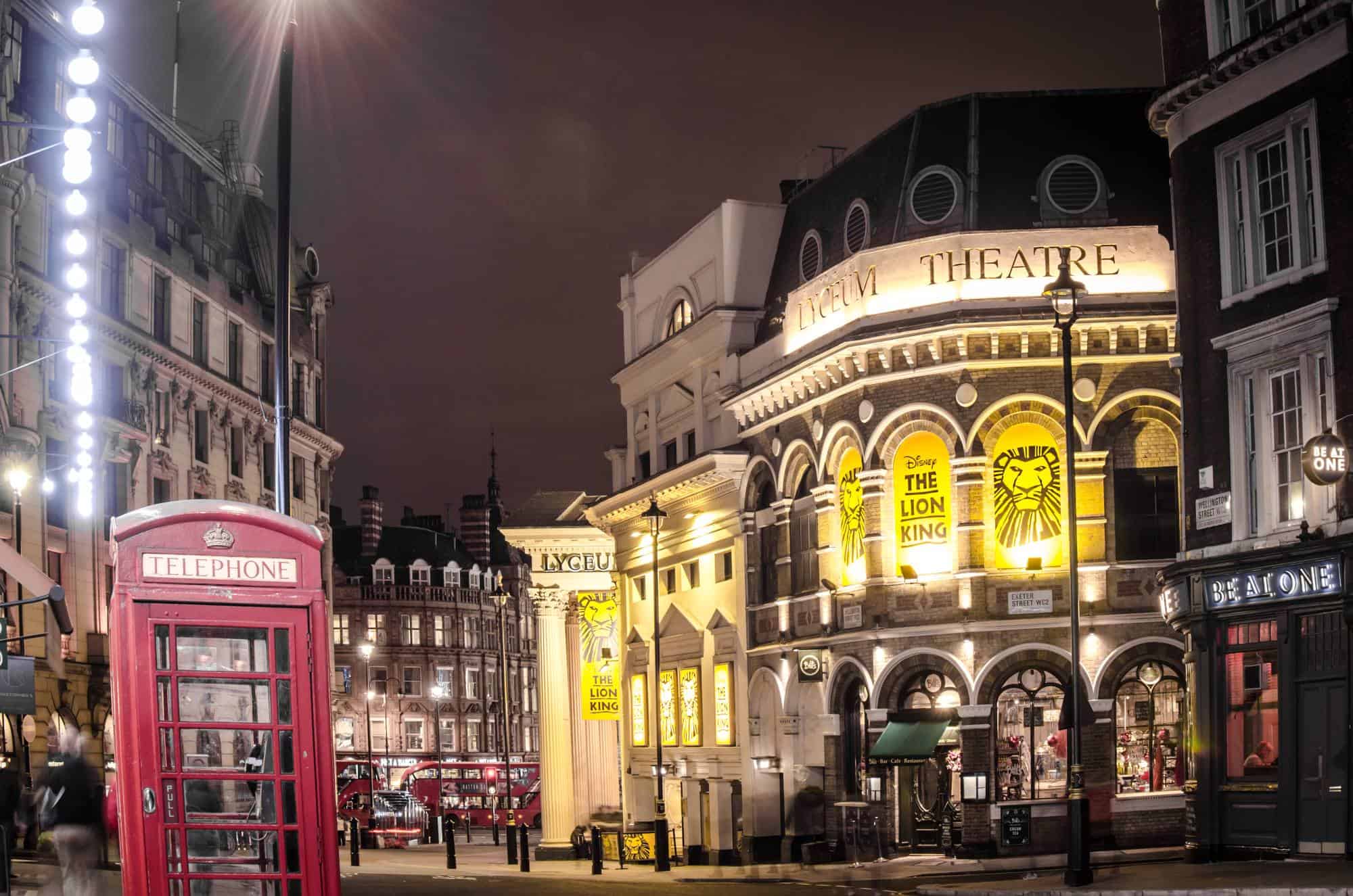
Using public transport, you can get almost anywhere you need faster than you would by car.
These travel connections extend to other areas of the UK. The city is home to several major railway stations, including King's Cross, Paddington, Euston, Victoria, and Liverpool Street.
These stations provide direct services to other cities across the UK, such as Manchester, Birmingham, Edinburgh, and Bristol.
London is a great base for travelers thanks to its international airports, the Eurostar train, and other travel options. The Eurostar operates from St Pancras International, taking passengers to continental Europe via the Channel Tunnel.
5. History and culture
Thanks to its history, and multicultural nature, London offers its residents a rare blend of stunning historical monuments and architecture as well as access to cuisine and events from most cultures on Earth.
Sometimes, traveling from one borough to another can feel like you’ve gone to a different city. This is one of the key factors that make London truly unique as a city.
Living in London: cons
1. London is not a cheap city!
It’s no secret that London can be an expensive city to live in.
However, if you’re smart with your money and choices, you can live reasonably comfortably on a smaller salary.
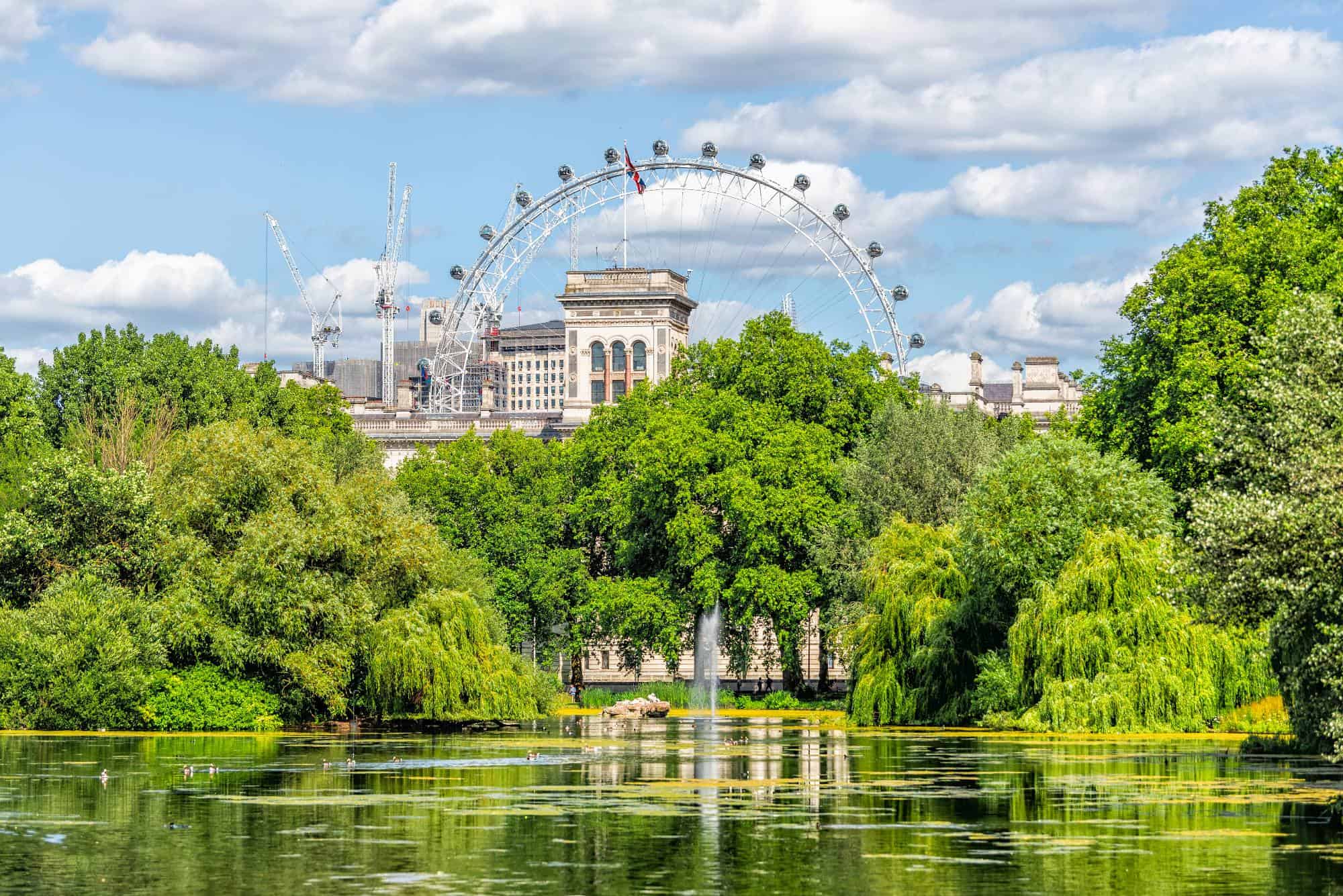
This may come with a few sacrifices, such as living further away from transport links, living in areas that aren’t as popular, and choosing accommodation that isn’t as nice as more expensive options.
Entertainment costs can add up too, meaning you may need to be selective when you’re trying new places - all depending on your budget, of course.
2. Travelling within London is expensive
Although transport is well connected and often runs 24 hours, it is not without its faults.
The underground costs add up (more than two trips a day can cost roughly £13 a day within certain zones), it can get hot (not all lines have air conditioning), and it can be very busy during rush hour. You can save a lot with an Oyster card, though.
Service is normally reliable. However, delays can occur (you’ll become familiar with the phrase ‘signal failure’). Buses can also be affected by heavy traffic, and the winter weather can affect overground train lines.
3. Travelling to the regions can be extortionate
However, the biggest surprise is when it comes to regions outside of London.
Getting to these areas can be very expensive. So much so that it is often cheaper to purchase flights to Europe than book a return journey on some English train lines. This may feel like an odd joke that everyone else is in on, but sadly, this is not the case.
4. London area rental market: fast and furious
The London rental market is highly competitive and expensive thanks to the high demand. Good properties get snapped very quickly, sometimes the very moment they appear on a property website. So if you do see something you like, you need to move quickly.

The high demand has led to the standards of some properties slipping and making it harder to find somewhere to live in highly desirable areas.
This demand also drives the prices up - especially in popular areas. So make sure you can afford what you see before contacting the agent. Most people are forced to compromise location and property size or share with others to ensure they can live in the desired area.
For more information on your rights as a tenant, required documents, and tips on finding a good property to rent, read our Renting In London guide.
5. Tourists are everywhere... in big numbers
Needless to say, the London area and its iconic tourist attractions are magnets for millions of visitors, both domestic and international. If you want to live in London, you have to learn to live with the crowds.
The tourist season is pretty much all year round, but the summer months are the busiest and, to be honest, can get over the top.
6. Embrace the commute
If you think that by living in London you can get to anywhere you want within the city very quickly, think again. The average commute time in London is 72 minutes.
For comparison, if you live in Peterborough, which is 118 kilometers (74 miles) north of London, it takes you only 46 minutes to get to King's Cross.
It's not that the public transport in London is inadequate. No, it is very good, in fact. But multiple changes, slow traffic flow, and delays can complicate your commutes.
Plus, if you are on a slow train that stops everywhere, a 15-minute journey can easily turn into a 40-minute trip.
London housing market and buying a property
Finding housing in London can be a challenging task. Due to its high demand and limited supply, the housing market in London is notoriously competitive.
With an overall average price of £737,512, properties in London are very expensive, and the prices are significantly higher compared to other parts of the country. London's first-time buyers have to pay almost twice as much as people in other areas of England and Wales pay for their first property.
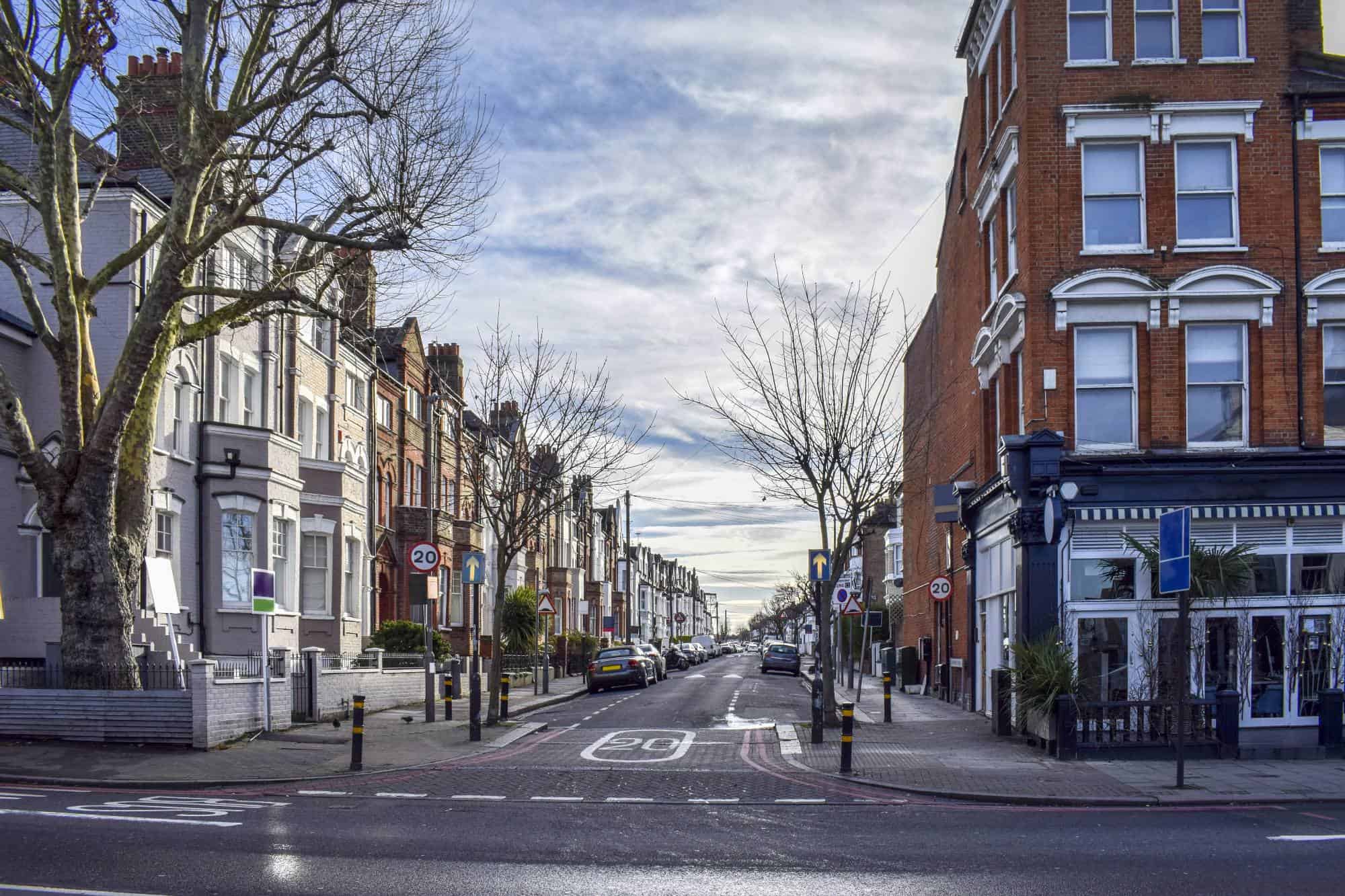
The key is to research the areas well and weigh the price against possible inconveniences such as long commuting. You can find cheaper properties in Barking and Dagenham, Bexley, Newham, Croydon, and Havering.
There's also an option to look at London commuter towns such as Broxbourne, East Hertfordshire, and Dacorum. They are further away from the city but more affordable.
Schools in London
Another London pro is the quality of its schools. Around 94% of London schools are currently judged to be good or outstanding by Ofsted, the UK school regulator.
London schools also get the highest amount of funding per pupil compared to the rest of the country. So wherever you choose to live in London, the chances of getting your child into a good school are pretty high.
There are also plenty of highly performing private and international schools. The most prominent are St Paul’s School in Barnes, South West London; St Paul’s Girls’ School in Brook Green, Hammersmith; King’s College School in Wimbledon; James Allen’s Girls’ School (JAGS) in East Dulwich Grove, South East London, Westminster Schools, and others.
Where to live in London
One of the best things about London is the diversity of lifestyles on offer. So, with this in mind, here are some of the top places to live based on how you may wish to live.
1. For nature lovers - Teddington
Teddington was recently named 2021’s best place to live in by the Sunday Times.
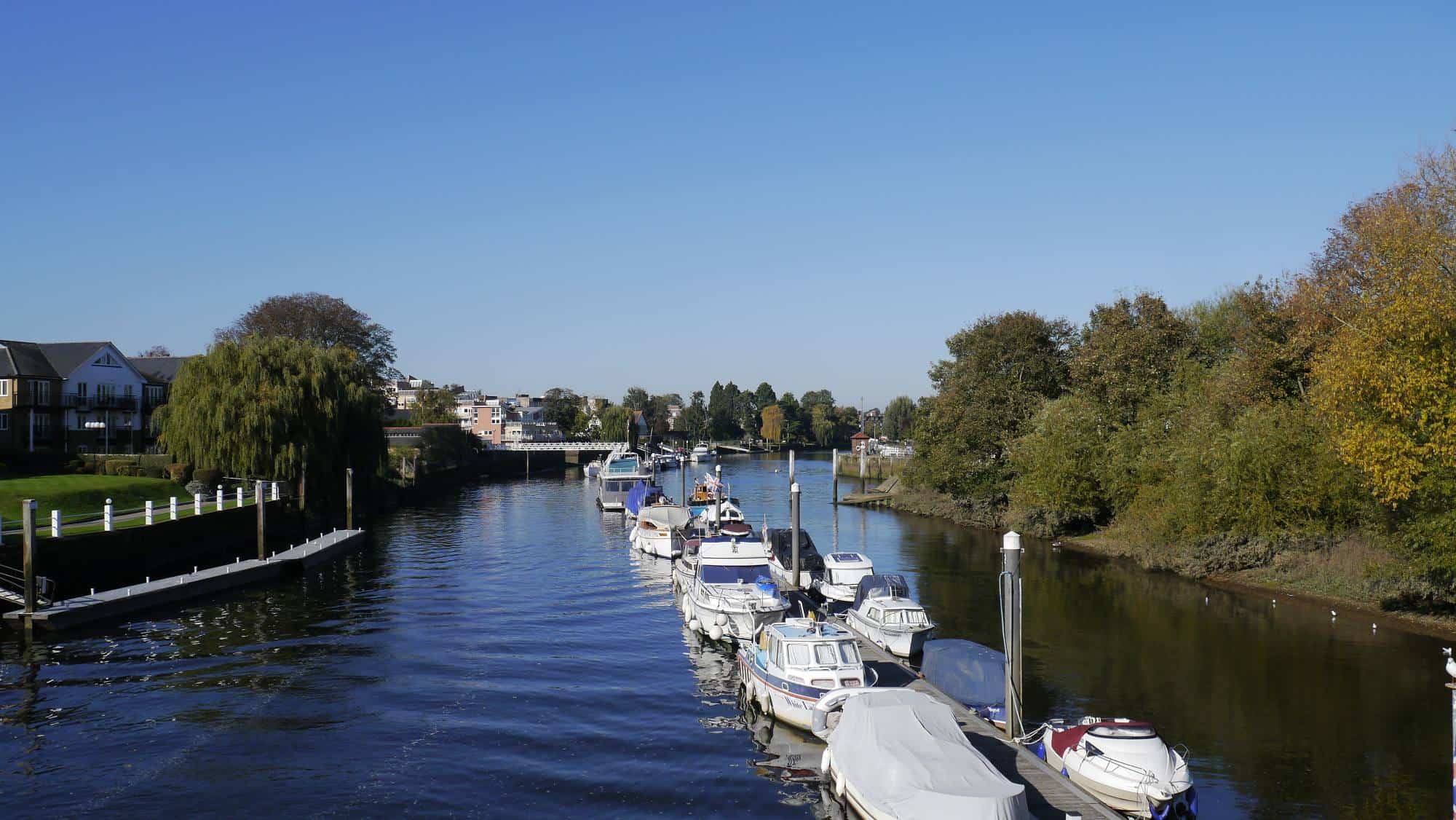
Although looking at a map, it appears to be a fair way from the city center, to many, this is part of the appeal. You can access the city without feeling like you’re stuck there.
Here you’ll find many independent shops, dogs galore, and Bushy Park (famed for its resident deer) just a stone’s throw away. Teddington is charming and ideal for families and those seeking space from the rat race.
2. For the ‘iconic London’ feeling - Primrose Hill
Primrose Hill is full of pastel-colored, regency terrace houses that resemble the set of a Wes Anderson film. In the network of quiet backstreets, you’ll find quaint bakeries, pubs, and cafes.
It’s also home to the hill of its namesake, which offers breathtaking panoramic views of London.
3. For multicultural experiences - Brixton and Clapham
Although two separate locations, these neighboring south London areas offer a unique take on life in the big city.
Stepping out from Brixton station, you’ll be instantly hit by the place's energy: the sights, the sounds, the smells (we’re talking about food).
Brixton has a real community feel and has shed the less-than-ideal reputation it once had. Like its neighbor, Clapham, Brixton is very popular with young people and offers a wide variety of clubs, pubs, eateries, and more.
Clapham differs slightly in that it benefits from the massive park named Clapham Common and is generally greener and has more space, making it popular with families, too. Both are well connected by transport links.
4. For living centrally - Marylebone
First things first, it is pronounced ‘Mar-le-bone’. This will save you from some jokes and awkward exchanges.
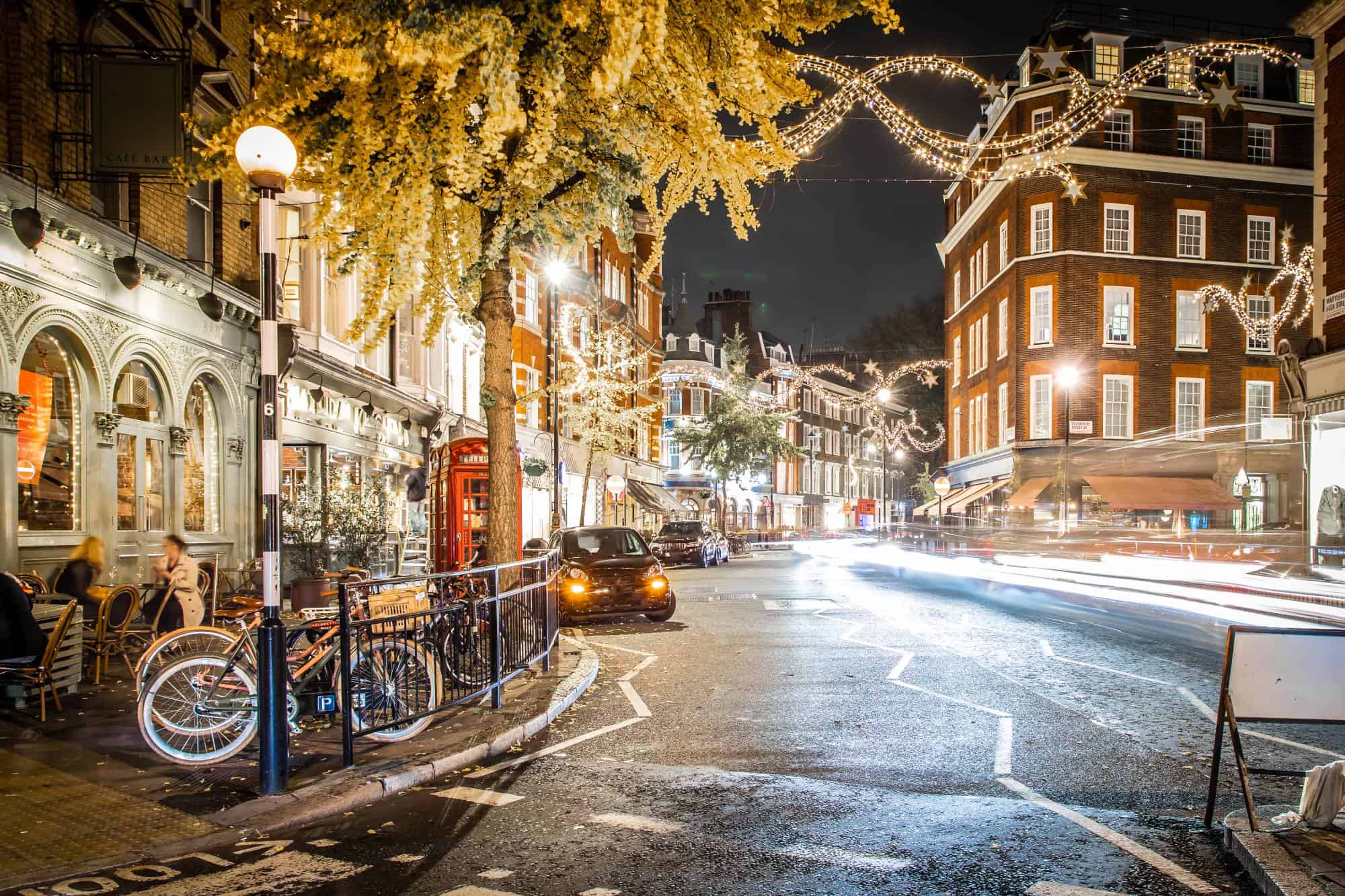
This central London location offers some quiet while being in the heart of the action. Here, you can wander terraced streets, enjoy the charming high street, and even take a short walk to Oxford Street, right in the heart of London.
This, of course, will come at a cost. Marylebone, together with Kensington, Chelsea, and other famous London areas, is one of the most expensive places to buy property in London. An average house price here is over £2 million, but for some, this may be the only way you wish to enjoy this city!
5. For the young and young at heart - Shoreditch
The once-industrial area of East London has been transformed into a street art-covered hub for all things new, artistic, and creative. Here, you’ll find truly unique bars, clubs, and shops.
Hackney and Hoxton are also nearby, where you’ll find green spaces, canals with beautiful houseboats, and regular markets.
6. For modern living - North Greenwich
North Greenwich on the Greenwich peninsula is where you find some of the most iconic sights of modern London: the white dome of the O2, a famous concert venue, the glass-fronted North Greenwich Tube Station, and the Emirates Air Line cable car across the River Thames to the Royal Docks.
There are trendy shops and cafes here, NOW Gallery for contemporary art lovers, brilliant bars and restaurants, and impressive riverside views. It's a vibrant and lively area with excellent entertainment options right on the doorstep.
It’s a good area if you work in Canary Wharf as it's just one stop away from the Jubilee line or if you often travel internationally as London City Airport is nearby.
London areas to avoid
As with any major city, there are certain areas you may wish to avoid as they aren’t as safe as others. Despite what you may have heard, London is a generally safe city and was ranked the 14th safest city in the world. However, here are some areas you may want to avoid:
In terms of crime/safety, the following were named as the most dangerous areas of London in 2021: Croydon, Newham, and Tower Hamlets.
Other areas worth avoiding for this reason are Haringey, Peckham, Lewisham, Kensal Rise, Harlesden, and Hackney. Some of these places can be great to visit, but perhaps not the best to live in.
Areas that are improving are Brixton, Wembley, and Camden, as they become increasingly popular with young people and gradually become more gentrified. There will be certain parts within these areas that would be better avoided.
As a general rule of thumb, living in London's large council estates is not a good idea as they tend to be further away from transport links. On this note, research the links available to you to get around the city. The further you get away from the city center, the less connected you will be - especially in areas further east and further south.
Finding friends in London
Like any big city, London offers great opportunities to meet new people and make friends, but it's easier said than done. If you have just arrived in London, join various Facebook and community groups. Checking out your local gym is also a good idea.
If you are an expat in London, look at Internations London, an expat group that organizes meetings and events. It's also worth trying Meetup groups to find people with common interests and hobbies.
Final thoughts on living in London
One of the most famous quotes about life in London comes from Samuel Johnson and goes like this:
Why, Sir, you find no man, at all intellectual, who is willing to leave London. No, Sir, when a man is tired of London, he is tired of life; for there is in London all that life can afford
Samuel Johnson
It’s hard to fault London because it really has it all - but all doesn’t always mean good.
Living in London may be the right thing for you if you’re seeking a place that offers a world of opportunity. However, if you’re not someone who loves the idea of living in the big city - perhaps you may need to take a moment to decide if London is the best place for you.
Other popular locations to consider:
- Living In Edinburgh: 16 Things You Need To Know
- Top 10 Best Places To Live In Bristol And Nearby
- The Pros And Cons Of Living In Birmingham, UK
You might find useful:
- Living In The UK – The Essential Guide For Expats
- How To Get A Well-Paid Job And A Skilled Worker Visa In The UK
- Best Places To Live In England
Helpful external links:
- London rents map - london.gov.uk.
- London public transport - Transport for London.
- Bike hire in London - tfl.gov.uk
- Traveling around London - Contactless and Oyster Card
Secure Peace of Mind with Best-Value International Health Coverage
International Citizens Insurance provide free, no-obligation quotes from the leading international health insurance providers with plans tailored to meet your needs. Trusted by thousands of expats worldwide.




